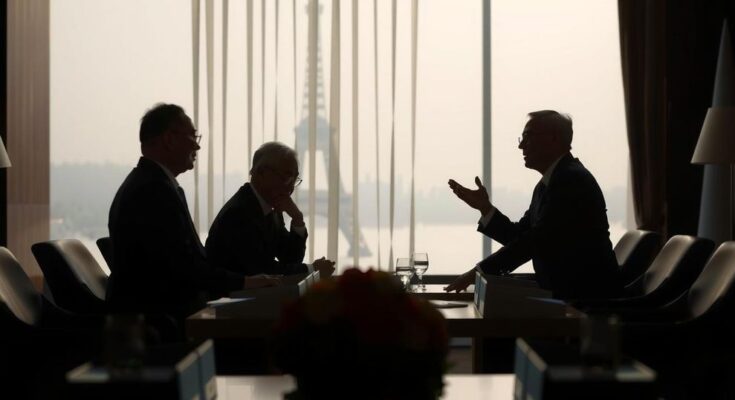Trade Minister Zulkifli Hasan calls for the conclusion of the IEU-CEPA negotiations, which have persisted for over nine years, stressing the need for expedience in light of a new government. The ongoing demands from the EU, despite Indonesia’s concessions, have contributed to a stalemate, prompting officials to consider pausing contentious discussions to finalize the agreement.
Trade Minister Zulkifli Hasan has urged the swift conclusion of the negotiations concerning the Indonesia-European Union Comprehensive Economic Partnership Agreement (IEU-CEPA), emphasizing the urgency given the ongoing discussions have spanned over nine years. “It is not an ultimatum; we are merely highlighting that negotiations may become more challenging with the advent of a new government,” he stated on September 26, 2024. He mentioned that newly elected President Prabowo Subianto aims to integrate palm oil into solar energy for a Biodiesel 50 (B50) initiative, reducing dependency on palm oil imports significantly. Despite Indonesia’s concessions during the negotiation phase, the European Union has continuously added requests, which has led to a stalemate in discussions. Zulkifli indicated that while the Indonesian side desires to finalize the agreement soon, the outcome largely rests upon the European Union’s willingness to compromise. The Director General of International Trade Negotiation, Djatmiko Bris Witjaksono, acknowledged that unresolved policy discussions between Indonesia and the EU have hindered progress. He suggested that both parties consider temporarily shelving these discussions to finalize the IEU-CEPA, which can be amended subsequently.
The IEU-CEPA negotiations have extended over a nine-year period, aiming to enhance trade partnerships between Indonesia and the European Union. Indonesia has faced increasing demands from the EU, leading to challenges in reaching a mutually acceptable agreement. The current government transition adds an extra layer of complexity to these negotiations, as the new administration under President Prabowo Subianto may approach trade policies differently.
The negotiations for the IEU-CEPA are at a crucial juncture, with the Indonesian government advocating for a swift resolution amidst a backdrop of complicating factors, including evolving governmental priorities and persistent EU demands. The desire for finality is strong, but success is contingent upon the EU’s willingness to negotiate favorably. This situation underscores the importance of diplomacy and the need for shared understanding to foster economic partnerships.
Original Source: en.tempo.co




